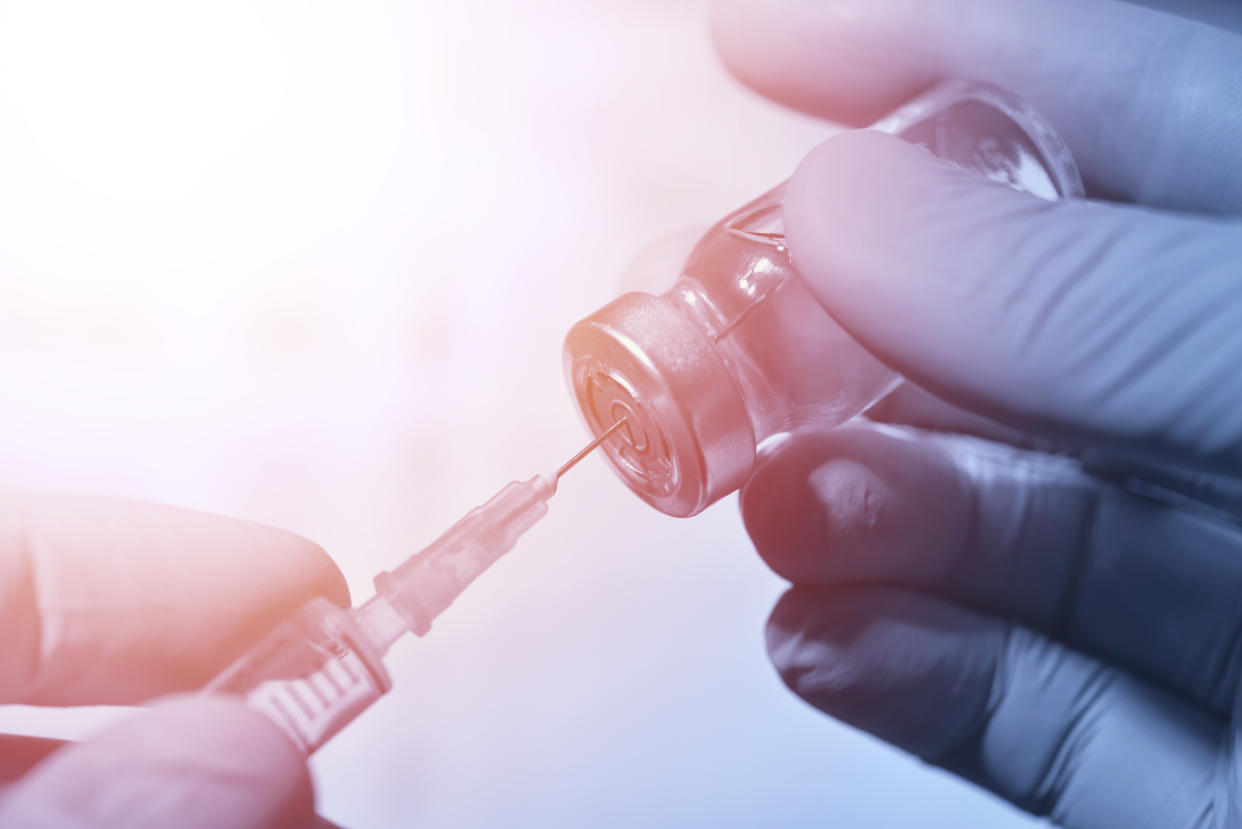Thousands of young people are volunteering to catch COVID-19 for medical research, potential vaccine

Thousands of people are volunteering to be exposed to the coronavirus to accelerate vaccine development in a project called 1 Day Sooner.
The grassroots organization is assembling a pool of volunteers between the ages of 20 and 45 and with no underlying conditions who are likelier to be exposed to COVID-19 (due to living in high-risk areas or contact with infected patients). The group of researchers and doctoral candidates within various fields of medicine are organizing a database of interested participants for “human challenge studies,” which have helped develop vaccines for diseases like malaria.
While the group is not affiliated with any universities or biomedical research agencies like the U.S. Department of Health and Human Services, it hopes to be a resource for upcoming COVID-19 studies.
According to a 2016 World Health Organization (WHO) paper, human challenge studies purposely expose a very small number of subjects to an infectious disease in the name of science, although ethical questions of consent and supervision arise without treatment to offer volunteers.
In March, research from the Journal of Infectious Diseases suggested that human challenge trials using SARS-CoV-2, which causes COVID-19, could bring a vaccine to the market sooner using healthy volunteers in a very controlled setting. And a May WHO paper explores the matter, stating that “SARS-CoV-2 challenge studies may (at present) be thought to involve higher levels of risk and uncertainty than other commonly accepted human challenge studies because the pathogenesis of COVID-19 is currently poorly understood; (with the recent exception of remdesivir) there is no specific treatment available, and severe disease or death can occur in young adults.”
Standard clinical vaccine trials have four phases, according to the Centers for Disease Control and Prevention. The first has a small group of people receive the vaccine, the second administers to those with traits the vaccine would treat and the third recruits thousands of people, some of whom receive a placebo, who are studied as they resume life outside the lab. Here, efficacy (whether the drug is effective) and safety are important. In the final phase, the approved vaccine is continuously studied.
Dr. Gregory Poland, head of the Mayo Clinic’s Vaccine Research Group, tells Yahoo Life that Phase 3 is precarious because “only 6 percent of vaccines make it through this period.”
As reported by Yahoo Life, more than 90 companies, including Johnson & Johnson and Pfizer, are working on COVID-19 vaccines, and on Monday biotechnology company Moderna announced that eight subjects participating in the first phase of a clinical trial led by the National Institute of Allergy and Infectious Diseases (NIAID) showed neutralizing antibodies.
1 Day Sooner cofounder Josh Morrison, who is also executive director of Waitlist Zero, an advocacy and educational group for kidney transplantation, tells Yahoo Life, “The flu kills about 1,000 people per day around the world on average, so even if coronavirus only ends up roughly on the level of flu by the time a vaccine is developed (maybe because drug treatments are developed), that would still represent at least 1,000 [saved] lives per day.”
Poland says while aiming for a quicker vaccine is admirable, science has not yet established the ethical framework for a pandemic vaccine because there is currently no treatment for COVID-19 and the fast-changing virus has the potential to mutate.
As of Wednesday afternoon, there are more than 24,000 1 Day Sooner volunteers from around the world, ranging from students to medical doctors and military veterans.
Morrison shared some of the many reasons why people have felt compelled to sign up. “I feel that this is such a clear and obvious choice for someone healthy and young,” one volunteer wrote on an application displayed on the 1 Day Sooner website; another stated, “I’d like to be helpful.”
People also volunteer for religious reasons, to reduce economic damage and to maximize the lockdown: “So I don’t look back on my time during this crisis as a complete waste.” And as one explained, “Quarantine sucks, and dying sucks more.”
For the latest coronavirus news and updates, follow along at https://news.yahoo.com/coronavirus. According to experts, people over 60 and those who are immunocompromised continue to be the most at risk. If you have questions, please reference the CDC’s and WHO’s resource guides.
How to maintain your physical and mental health during the pandemic
Taking care of a loved one with COVID-19? Here’s how to stay healthy
Q&A with Dr. Kavita Patel: How to keep your family safe and maintain your mental health
Read more from Yahoo Life:
Coronavirus takes its toll on essential workers: ‘The highest levels of stress we’ve seen’
Hydroxychloroquine expert warns against following Trump's lead in taking drug to prevent COVID-19
Want daily wellness, lifestyle and parenting news delivered to your inbox? Sign up here for Yahoo Life’s newsletter.


